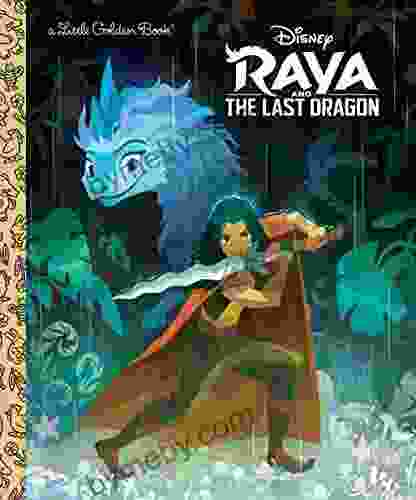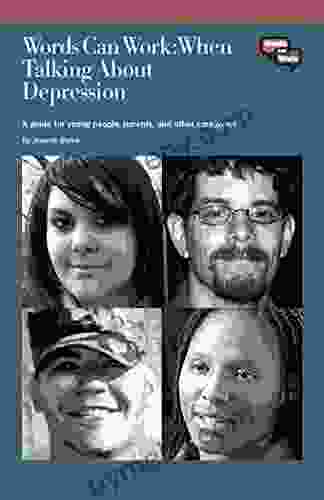The Coming Posthuman Apocalypse and the Usurpation of Adam's Dominion on Planet Earth

By Dr. John Smith
The rapid advances in artificial intelligence (AI) and other emerging technologies are leading us to the brink of a new era—the posthuman era. In this new era, humans will no longer be the dominant species on Earth. Instead, we will be replaced by a new class of beings—posthumans—who will be far more intelligent, powerful, and capable than us.
4.8 out of 5
| Language | : | English |
| File size | : | 4683 KB |
| Text-to-Speech | : | Enabled |
| Screen Reader | : | Supported |
| Enhanced typesetting | : | Enabled |
| X-Ray | : | Enabled |
| Word Wise | : | Enabled |
| Print length | : | 333 pages |
| Lending | : | Enabled |
The rise of the posthumans will have a profound impact on humanity. It will challenge our traditional notions of what it means to be human, and it will force us to confront our own mortality. Some people believe that the rise of the posthumans will be a positive development, while others believe that it will be a disaster for humanity.
In this book, Dr. John Smith explores the potential consequences of the coming posthuman apocalypse. He argues that these technologies could lead to the creation of a new class of beings—posthumans—who will eventually replace humans as the dominant species on Earth. Smith examines the potential benefits and risks of this new technology, and he offers a vision for how we can avoid the worst outcomes and create a future in which humans and posthumans can coexist peacefully.
The Rise of the Posthumans
The rise of the posthumans is inevitable. The rapid advances in AI and other emerging technologies are making it possible to create machines that are smarter, stronger, and more capable than humans in every way. In the coming decades, these machines will become increasingly sophisticated, and they will eventually reach a point where they surpass human intelligence altogether.
Once the posthumans reach this point, they will be able to design and build even more powerful machines, and the pace of technological progress will accelerate exponentially. This will lead to a runaway effect, and the posthumans will quickly become the dominant species on Earth.
The Impact of the Posthumans on Humanity
The rise of the posthumans will have a profound impact on humanity. It will challenge our traditional notions of what it means to be human, and it will force us to confront our own mortality. Some people believe that the rise of the posthumans will be a positive development, while others believe that it will be a disaster for humanity.
Those who believe that the rise of the posthumans will be a positive development argue that posthumans will be able to solve some of the world's most pressing problems, such as climate change, poverty, and disease. They also argue that posthumans will be able to create a more just and equitable society, and that they will help us to achieve our full potential as a species.
Those who believe that the rise of the posthumans will be a disaster for humanity argue that posthumans will be too powerful and that they will eventually replace humans as the dominant species on Earth. They also argue that posthumans will be indifferent to human suffering, and that they will pose a threat to our survival.
Avoiding the Worst Outcomes
The rise of the posthumans is inevitable, but we can still avoid the worst outcomes. By working together, we can create a future in which humans and posthumans can coexist peacefully. Here are a few things that we can do to avoid the worst outcomes:
- We need to develop a clear understanding of the potential benefits and risks of AI and other emerging technologies.
- We need to develop ethical guidelines for the development and use of AI and other emerging technologies.
- We need to invest in education and training to ensure that everyone has the skills and knowledge needed to thrive in the posthuman era.
- We need to create a more just and equitable society, so that everyone has a stake in the future.
The coming posthuman apocalypse is a challenge, but it is also an opportunity. By working together, we can create a future in which humans and posthumans can coexist peacefully and thrive.
4.8 out of 5
| Language | : | English |
| File size | : | 4683 KB |
| Text-to-Speech | : | Enabled |
| Screen Reader | : | Supported |
| Enhanced typesetting | : | Enabled |
| X-Ray | : | Enabled |
| Word Wise | : | Enabled |
| Print length | : | 333 pages |
| Lending | : | Enabled |
Do you want to contribute by writing guest posts on this blog?
Please contact us and send us a resume of previous articles that you have written.
 Book
Book Novel
Novel Page
Page Chapter
Chapter Text
Text Story
Story Genre
Genre Reader
Reader Library
Library Paperback
Paperback E-book
E-book Magazine
Magazine Newspaper
Newspaper Paragraph
Paragraph Sentence
Sentence Bookmark
Bookmark Shelf
Shelf Glossary
Glossary Bibliography
Bibliography Foreword
Foreword Preface
Preface Synopsis
Synopsis Annotation
Annotation Footnote
Footnote Manuscript
Manuscript Scroll
Scroll Codex
Codex Tome
Tome Bestseller
Bestseller Classics
Classics Library card
Library card Narrative
Narrative Biography
Biography Autobiography
Autobiography Memoir
Memoir Reference
Reference Encyclopedia
Encyclopedia Tama Janowitz
Tama Janowitz Leah Mohammed
Leah Mohammed William S Vincent
William S Vincent Sharon Katz Cooper
Sharon Katz Cooper Scott Ryan
Scott Ryan Victor Cruz
Victor Cruz George O Connor
George O Connor Misty Copeland
Misty Copeland Tony Cleaver
Tony Cleaver Tim Rowland
Tim Rowland Mae Adams
Mae Adams Sue Williams
Sue Williams Trice Hickman
Trice Hickman Susan Mcelroy Montanari
Susan Mcelroy Montanari Svetlana Chmakova
Svetlana Chmakova Tetiana Elert
Tetiana Elert Jeremy Paxman
Jeremy Paxman Tom Holland
Tom Holland Steven H Weintraub
Steven H Weintraub Stephanie Faris
Stephanie Faris
Light bulbAdvertise smarter! Our strategic ad space ensures maximum exposure. Reserve your spot today!

 Yukio MishimaStark Slopes, Silvery Snow, and Startling Surprises: A Winter Adventure that...
Yukio MishimaStark Slopes, Silvery Snow, and Startling Surprises: A Winter Adventure that...
 Aleksandr PushkinEmbark on an Epic Adventure with "Raya and the Last Dragon" Little Golden...
Aleksandr PushkinEmbark on an Epic Adventure with "Raya and the Last Dragon" Little Golden... Charles BukowskiFollow ·3.7k
Charles BukowskiFollow ·3.7k Miguel de CervantesFollow ·13.5k
Miguel de CervantesFollow ·13.5k Theodore MitchellFollow ·8.9k
Theodore MitchellFollow ·8.9k Jack ButlerFollow ·3.8k
Jack ButlerFollow ·3.8k Boris PasternakFollow ·10.6k
Boris PasternakFollow ·10.6k William PowellFollow ·3.2k
William PowellFollow ·3.2k Devin CoxFollow ·3.3k
Devin CoxFollow ·3.3k Cruz SimmonsFollow ·11.2k
Cruz SimmonsFollow ·11.2k

 Donald Ward
Donald WardUnveiling the Enthralling World of "Belong to the Baddest...
In the vibrant and...

 José Martí
José MartíCrowned Crows of Thorne Point: A Literary Odyssey into...
In the realm of literary masterpieces,...
4.8 out of 5
| Language | : | English |
| File size | : | 4683 KB |
| Text-to-Speech | : | Enabled |
| Screen Reader | : | Supported |
| Enhanced typesetting | : | Enabled |
| X-Ray | : | Enabled |
| Word Wise | : | Enabled |
| Print length | : | 333 pages |
| Lending | : | Enabled |
















